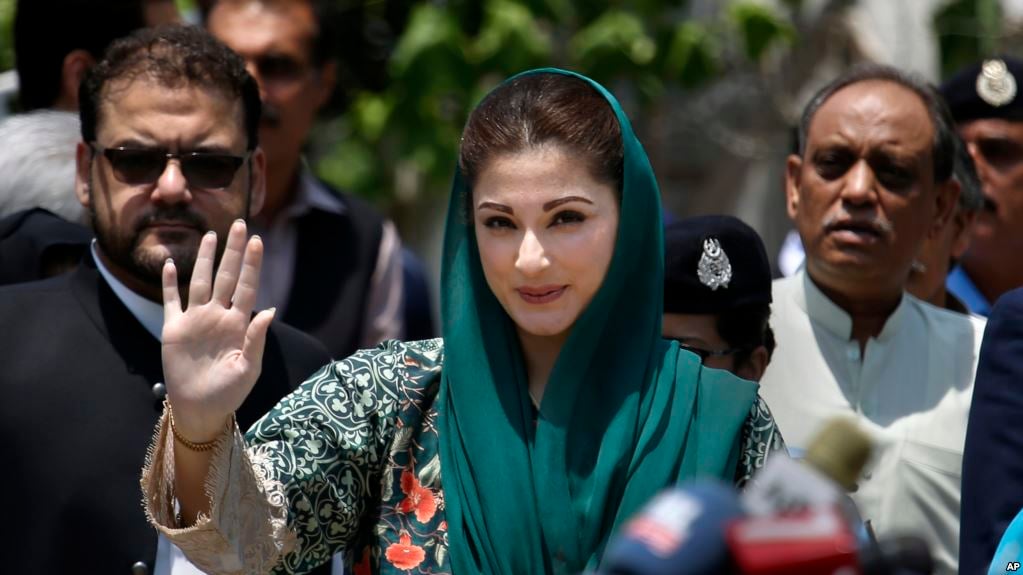Pakistani political parties make moves ahead of upcoming elections

RSS
December 31, 2017

by Muhammad Tahir, Jamil Bhatti
ISLAMABAD,Political parties in Pakistan are making efforts to fully prepare themselves for next year's parliamentary elections, as Prime Minister Shahid Khaqan Abbasi, to some extent, relieved uncertainty by setting July in 2018 for the general elections to be held.
Abbasi assumed office after the country's Supreme Court disqualified Nawaz Sharif as prime minister in July over corruption charges. Sharif, however continues to serve as the president of the country's ruling Pakistan Muslim League-Nawaz (PML-N).
Abbasi's announcement came at a time when doubts had been blurring the possibility of the next general election and the continuation of the democratic system in the country due to ongoing crises and legal complications.
Senator Mushahidullah Khan, Minister for Climate Change, said that the announcement of the election date is very encouraging for the political system as well as for political workers.
An influential opposition party the Pakistan Tehrik-e-Insaf (PTI), or the Pakistan Justice Movement, had campaigned for snap polls and underscored their demand by saying that the apex court's decision against the former prime minister and corruption cases had created political uncertainty in the country and the government of Abbasi has no public support.
However, other opposition parties argued that the government should complete its five-year term to be ended anytime after March next year.
The government led by the PML-N survived a couple of severe crises including the cases against their party president, a three-times elected prime minister of Pakistan.
Although the ruling party quickly resolved the crisis that gripped the country after the apex court's decision, some problems still remain as Sharif along with some of his family members are still facing cases in anti-corruption courts.
But the PML-N still remains popular in some parts of the country. Sharif told his supporters in the eastern city of Lahore this week that his party will "achieve an historic win" in the parliamentary election, asking party activists to focus on the coming elections.
Meanwhile, PML-N leaders also announced that Sharif will lead the party's election campaign despite his disqualification from holding any public office.
"The disqualification of Nawaz Sharif could not affect the popularity of the leader of PML-N. The next general election will be conducted on time without any delay, and every coming day will kill the uncertainties about the democratic system and the polls," said Khan, a senior leader of the PML-N and a close aide of Sharif.
One of the positive aspects of Pakistan's political scenario is that the military as of now did not intervene even during the political crisis, and Army Chief General Qamar Javed Bajwa on several occasions renewed support for the current democratic system.
For the first time in the county's history, the army chief was invited by the Chairman of Senate for interaction with the upper house lawmakers on security issues this month, where he once again reiterated support for the system.
Although formal campaigning for the elections has not yet begun, all major parties are engaged in organizing public meetings to garner support for the elections, and a few parties have even announced their candidates for several constituencies. Almost all political parties are busy making their political alliances for 2018.
Opposition leaders Imran Khan, PTI chief, and former President Asif Ali Zardari, co-chairman of the Pakistan People's Party (PPP), are mulling joining religious cleric Tahir-ul-Qadri in an anti-government campaign, sources close to the matter have said.
Political watchers also believe these efforts could lead to an alliance or seat adjustment in next year's election. If the three parties join hands, their cooperation could provide a tough time to the PML-N in eastern Punjab, the country's most populated province and strong political base of the PML-N.
Major ultra-conservative Islamist religious parties, including Jamiat ulema-e-Islam, or Assembly of Islamic Clerics as it is known in English, Jamaat-e-Islami, and Jamiat Ulema-e-Pakistan, or Assembly of Pakistani Clergy, have also decided to revive their latent old alliance -- the Muttahida Majlis-e-Amal, or the United Council of Action.
In 2002, the religious alliance successfully availed people's anger over the U.S. military action in neighboring Afghanistan and formed the government in the northwestern Khyber Pakhtunkhwa Province. The alliance also secured dozens of seats in the lower house of parliament.
This time around, however, the PTI, the ruling party of Khyber Pakhtunkhwa, is likely to give them a tough time due to its popularity among young and progressive voters.
Lawmakers belonging to opposition parties believe that there is no threat to the democratic system and that the system should continue without any intervention by holding the timely elections.
Shazia Mari, a senior member of parliament from the PPP, said elections should be held on time and all parties must work to strengthen the democratic system. "This should be our top priority to make the parliament strong. My party fully supports the continuation of the democratic system," the senior PPP official told Xinhua on Thursday.
Senator Shibli Faraz from the opposition PTI party noted with satisfaction that the army chief's support for the democratic system has played an important role to end speculation about any threat to the system.
Faraz told Xinhua on Thursday that there is no problem in the holding of general elections as all parties have supported the government in election reforms.
According to local media reports, following Abbasi's announcement of a polls date, the majority of political leaders and parliamentarians have gone to their home constituencies to push early completion of ongoing development and welfare projects, and to initiate an unannounced election campaign for next year's elections. Enditem
---


Leave Comment